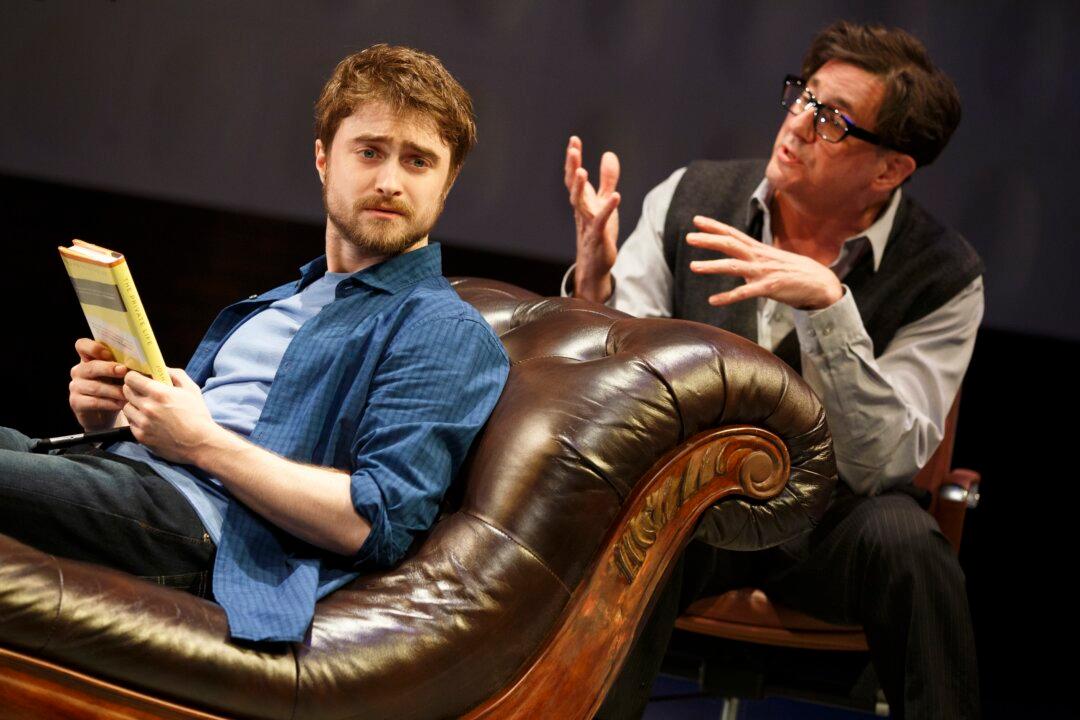NEW YORK—Big Brother is watching. So is Google, Target, Amazon, iTunes, and just about every other group with a presence on the World Wide Web. That includes The Public Theater, home to James Graham’s topical and interactive work “Privacy.”
In present-day London, young Writer (Daniel Radcliffe) is trying to deal with the aftermath of an emotional breakup. Suffering from writer’s block and with no followers on his Facebook page, he’s planning to move to New York City, where his former love now resides.
With so many avenues to choose from, "Privacy" is never clear about its ultimate message.





